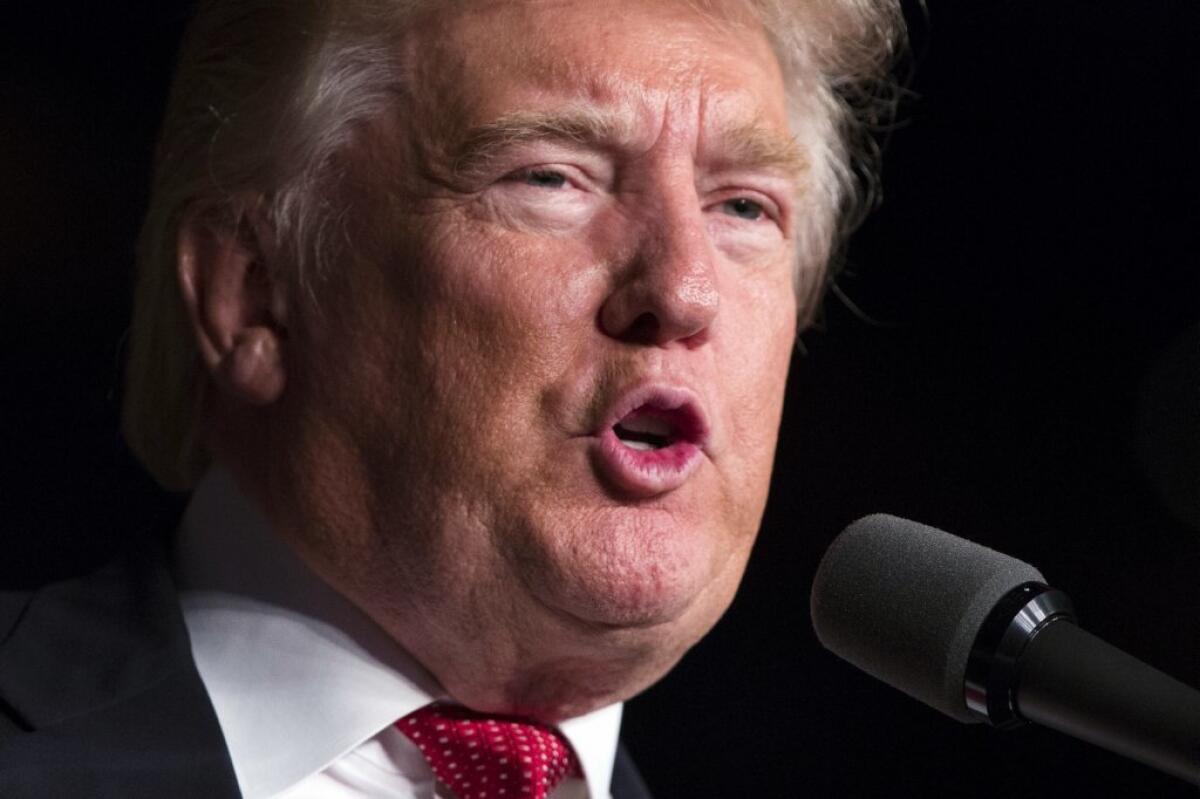Opinion: Donald Trump’s approach to terrorism is simplistic — and seductive

- Share via
To be fair, Donald Trump’s statement on recent terror attacks didn’t begin with praise for himself or attacks on his political opponents. He began by saluting the police, without whom “our country is neither safe nor secure.”
That tribute out of the way, Trump asserted that “this weekend’s attacks, from Minnesota to Manhattan, are just the latest to be carried out on U.S. soil under President Obama.” And by the fourth paragraph he was boasting that “I will bring an end to these senseless acts of violence.”
How exactly?
“When I am president,” Trump said, “terrorists like today’s suspect in the New York and New Jersey bombings, Ahmad Khan Rahami, and Saturday’s knife-wielding ISIS sympathizer in Minnesota, Dahir Adan, will be stopped. We will not look the other way. We will not allow political correctness and soft-on-terror, soft-on-crime policies to threaten our security and our lives.”
(Trump implied that such softness explained the mistaken granting of citizenship to 858 immigrants, the subject of an embarrassing report by the Department of Homeland Security’s inspector general. Actually, the cause of that error was a flaw in fingerprint records.)
To show how things would be different in a Trump administration, he cited his proposals for “extreme vetting” of immigrants from countries with a history of terrorism — the kinder, gentler version of his “total and complete shutdown of Muslims entering the United States” — and his opposition to Hillary Clinton’s support for an increase in the number of Syrian refugees to be admitted to the United States.
But many countries — including France and the United Kingdom — have a history of terrorism and it’s still unclear how Trump’s “extreme vetting” would work. As for Syrian refugees, many are children. Moreover, fact-checkers have debunked Trump’s claim that under the refugee policy Clinton supports there is “no system” to vet refugees or to prevent the radicalization of their children. In fact, there is an elaborate screening program.
Trump didn’t explain how “extreme vetting” of Rahami, who came to the United States from Afghanistan years ago with his family, would have predicted his alleged radicalization.
Trump also said that, unlike Clinton, who uses the supposedly anemic phrase “determined enemies” to describe Islamic State and similar groups, he was willing to “call them exactly what they are: ‘radical Islamist terrorists’” — as if saying these magic words would make a difference.
Like Trump’s campaign in general, his promise that he would be able to bring an “end to these senseless acts of violence” is simplistic. The problem for Hillary Clinton is that, with every new terrorist attack, simplistic solutions become more seductive for some voters.
Follow the Opinion section on Twitter @latimesopinion and Facebook.
More to Read
A cure for the common opinion
Get thought-provoking perspectives with our weekly newsletter.
You may occasionally receive promotional content from the Los Angeles Times.











